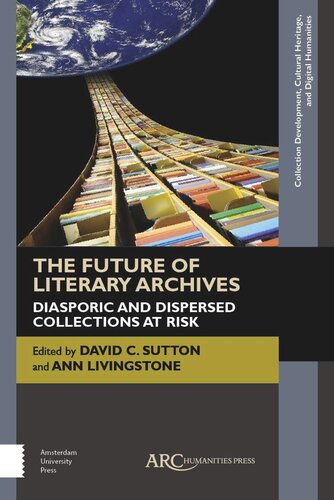

Most ebook files are in PDF format, so you can easily read them using various software such as Foxit Reader or directly on the Google Chrome browser.
Some ebook files are released by publishers in other formats such as .awz, .mobi, .epub, .fb2, etc. You may need to install specific software to read these formats on mobile/PC, such as Calibre.
Please read the tutorial at this link: https://ebookbell.com/faq
We offer FREE conversion to the popular formats you request; however, this may take some time. Therefore, right after payment, please email us, and we will try to provide the service as quickly as possible.
For some exceptional file formats or broken links (if any), please refrain from opening any disputes. Instead, email us first, and we will try to assist within a maximum of 6 hours.
EbookBell Team

4.4
32 reviewsLiterary archives differ from most other types of archival papers in that their locations are more diverse and difficult to predict. Acquiring institutions for literary papers have historically had very little by way of collecting policies and consequently the collecting of literary papers has often been opportunistic and serendipitous. The essays collected in this book all derive or continue from the recent work of the Diasporic Literary Archives Network, which takes a comparative, transnational and internationalist approach to studying literary manuscripts, their uses and their significance. The focus on diaspora provides a philosophical framework which gives a highly original set of points of reference for the study of literary archives, including concepts such as the natural home, the appropriate location, exile, dissidence, fugitive existence, cultural hegemony, patrimony, heritage, and economic migration.